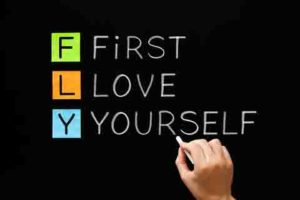The end of a long friendship

Four months later, feeling stronger, I read Heather’s email and reply. I decide to end my relationship with her. A year later, grateful for the lesson about the actual state of our “close” friendship, I write a brief email, saying I am well and asking her not to reply. We’ve had no further communication.
I find that, while I deeply grieve the loss of our long friendship, I have to accept Karl’s observations:
This has been going on for a long time, Wadie. You heated things up until they were too uncomfortable for Heather, and she just told you the truth. You should be grateful that one of you — in your relationship — has finally spoken the truth.
Later, as I reflect on my response to Heather’s email, I remember the dramatic contrast between how it affected me and my earlier sense of being “washed by love” (for several months after Karl’s death). At that time, I find God in all things, sensing love in the particulars of my daily life and experiencing a sense of conscious, loving union with the Divine. Softened beyond my imagining, I live in a place of miracle and wonder, marveling at the gifts I receive after Karl died. I feel uniquely and unconditionally loved by him.
In the early days of my grieving, love features almost exclusively in my journal entries and the emails I send. I rejoice in the gifts that have been returned to me, despite my diminishments. I feel bathed in love.
And when anyone asks me if I will ever be happy again, I always answer, “Yes!”
MY DESPERATE EMAIL CONFUSEs EveryonE
But now, nearly a year after Karl’s death, when I sent my desperate email it confuses everyone.
And I confuse myself.
I deeply mourn the loss of my old self that this recent trauma has destroyed. Now, clumsily, I am fashioning my new self. But some old relationships have been tested and forever changed. Life has erased my past. My future exists only in my imagination. I am asking impossible questions. I feel ashamed, outcast.

I want my life back; I long to live. I am desperate to be well, to be happy, and to be “myself” again. I beg to be “normal”.
We must find ways to express OUR grief and heroically mourn it
In a compelling book, When Your Soulmate Dies (2016), Alan Wolfelt explains that while we are experiencing grief, we must also find ways to express it and heroically mourn it if we are to integrate it into our being. Because pain has stripped so much away from me, I need someone who really knows and loves me to listen closely and to tell me that I matter — that my life is worth saving. My profound sense of isolation only deepens when I reach out to a close and longstanding friend who cannot give me what I am begging for.
Choosing self-love over adultation

Later, after much further reflection, standing in my imagination at the Gratitude Gateway, I feel I can benefit from the content of Heather’s email because I received it nearly a year after Karl’s death. I could not have done so much earlier — as gratitude is difficult in a state of shock or denial. We need to digest the finality of death, the enormity of our loss, and allow a complex array of emotions to surface. Then we need to process those emotions before authentic gratitude can arise. Looking back, I feel disappointed that I could not find a way to refashion my relationship with Heather. I adored her for decades. But now I have to choose self-love over adulation.
As Karl reminds me, self-love will serve me better as I continue to heal.
